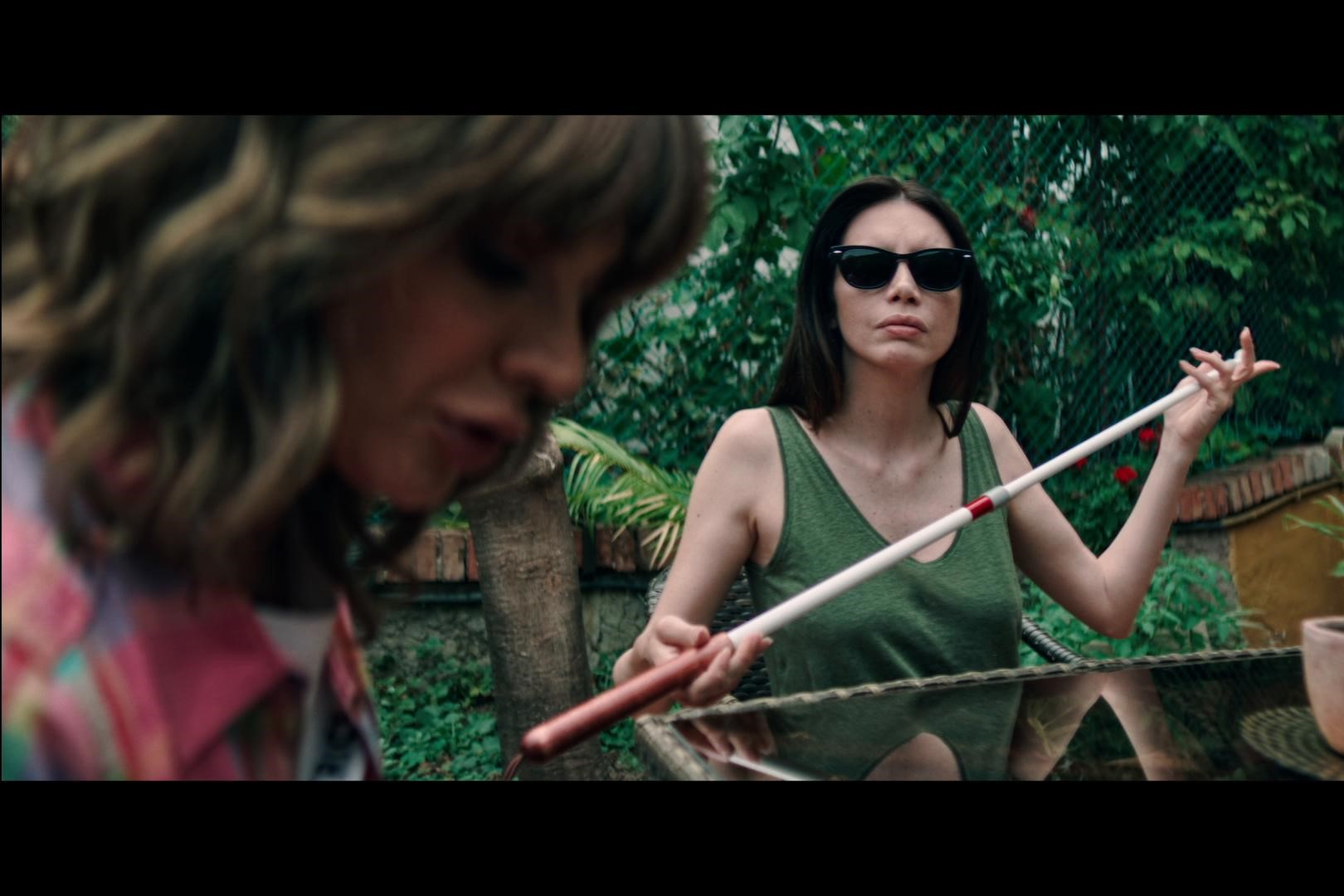There was once a time when a new film from Dario Argento would have been the most anticipated horror releases of any given year. Sadly, the Giallo maestro hasn’t hadn’t an unqualified success for decades now. 1996’s The Stendhal Syndrome has its fans, but it’s widely agreed that his last classic was Opera in 1987. It has been assumed that he’d retired from directing given that his last effort was the misguided Dracula 3D a full decade ago. And yet he’s back with Dark Glasses, a pulpy slasher back firmly in the genre he did much to define. And it’s… not bad.
Dark Glasses follows Diana (Ilenia Pastorelli), a high-end sex worker who finds herself the target of a serial killer who has murdering others in her profession. One evening she’s pursued in a high-speed chase by the killer. The pursuer’s van rams her car, which sends her through a red light and into a collision with a Chinese family. The parents are killed and Diana is blinded. She later forms a bond with Chin (Xinyu Zhang), the dead couple’s son, but the danger is far from over, and how can Diana protect the boy, let alone herself, when she can’t even see?
It might seems strange to consider a film to be something of a return to form when it features slapdash plotting, lackadaisical characterisation, and the occasional nonsensical scene that seems to come from another movie entirely. Yet, this is an Argento jam, and the veteran stylist has always prioritised mood and spectacle over coherence. If anything, this is a relatively sober effort by his standards, and there’s an extra ingredient that’s been hitherto missing during his career: sentiment.
Not that Argento has lost his ability to shock. The opening garrotting of an unnamed sex worker is a protracted, gory nightmare that leeches every ounce of trauma and pain from the victim. So far, so retrograde. But placing Diana in that line of work establishes an instant vulnerability. She may be catering for the wealthier client, but even before her accident her occupation places her in potentially dangerous situations. The focus on the potential victims of a killer is also unusual. A late-life softening in approach, perhaps?
Beyond the pull of narrative away from the black-gloved murderer and the police on the tail, Dark Glasses is firmly in standard Giallo territory as the unlikely pair of Diana and Chin attempt to uncover the murderer while staying one step ahead. There is also a smaller part for Asia Argento as a social worker who comes to the pair’s aid, and if you’re familiar with Dario’s treatment towards members of his own family in various films, you can probably guess how that ends up. Throw in a bizarre scene where out heroes blunder into a pit of water snakes for no reason whatsoever, and there is much that feels like the more things change, the more they stay the same.
Overall however, Dark Glasses feels muted compared to the elaborate excesses of Argento’s most beloved work. The colour palette lacks the expressionist pop and his baroque camera flourishes are conspicuous by their absence. It would be easy to see it as a disappointment if some of the intervening films since his heyday hadn’t been so poor. But then he adds a poignant coda that’s as unexpected as some of his maximalist set pieces. Perhaps it’s a goodbye, and acknowledgement that this may be a swansong. If so, he’s not going out with a bang, but neither is it a whimper.
Available to stream on Shudder from Thu 13 Oct 22


Comments